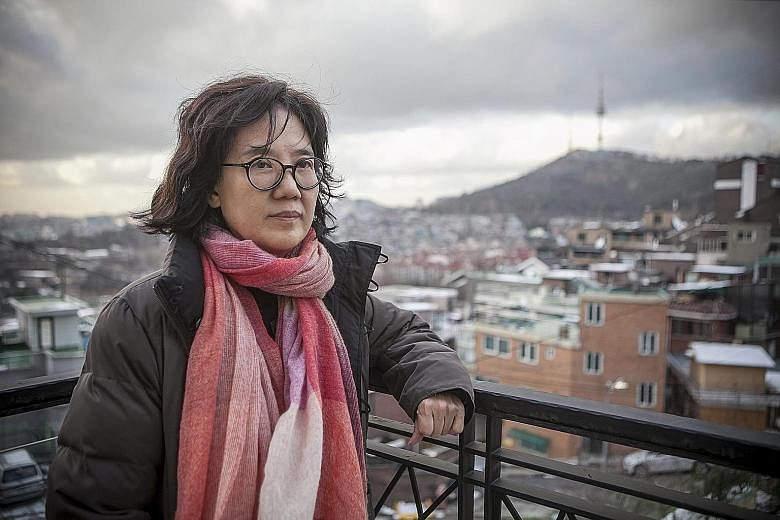SEOUL • A professor whose book about Japan's World War II-era military brothels angered Korean women who once worked there was acquitted this week of defaming the women.
The professor of Japanese literature at Sejong University in Seoul, Professor Park Yu Ha, published Comfort Women Of The Empire in 2013. She has since faced civil and criminal complaints from nine South Korean women who said they were forced to work at the brothels during the war.
A year ago, Prof Park lost a civil lawsuit when a court said she had defamed the women with "false" and "distorted" content in her book and ordered her to pay 10 million won (S$12,200) to each of the nine women. But on Wednesday, she won the criminal case.
In a case closely followed by the South Korean news media, a judge in Seoul's Eastern District Court ruled that her academic freedom must be protected.
"The opinions the defendant expressed in her book can invite criticism and objections and can even be abused by those who deny that the comfort women were forcibly mobilised," said Judge Lee Sang Yoon.
"But academic expressions must be protected not only when they are right but also when they are wrong."
Judge Lee said Prof Park's book should ultimately be judged by academics and citizens through free debate.
Prosecutors, who had asked the court to sentence Prof Park to three years in prison, have a week to appeal against the verdict.
When the judge read the verdict on Wednesday, 89-year-old Lee Yong Soo, one of the nine women, stood up and denounced it. She also called Prof Park a "pro-Japanese traitor", according to South Korean news reports.
The author welcomed the decision and said she had been fighting not against the women but against their advocates - including local academics and journalists - who she said would not tolerate any opinions different from the mainstream narrative about the women.
Many intellectuals in South Korea and Japan have warned that Prof Park's legal troubles illustrated how dangerous it can be to challenge conventional wisdom in South Korea about historically delicate issues.
In her book, Prof Park called for a more comprehensive view of the women in the brothels, euphemistically referred to by the Japanese as "comfort women".
They have been widely described in official South Korean history as young women forced or lured into sexual slavery. Prof Park argues that such a picture was only partly true.
She wrote that there was no evidence that the Japanese government was officially involved in, and therefore legally responsible for, forcibly recruiting the women from Korea, then a colony of Japan.
She said Korean collaborators, as well as private Japanese recruiters, were mainly responsible for placing Korean women, sometimes through coercion, in the "comfort stations".
She also said that life there included both rape and prostitution, and that some women developed a "comrade-like relationship" with Japanese soldiers.
Her critics in South Korea, including historians and former sex slaves, accuse her of selectively choosing historical data to parrot a view that many Japanese take on the issue.
NYTIMES

